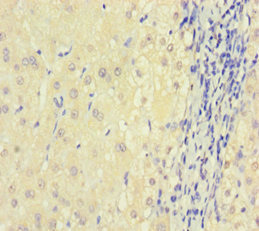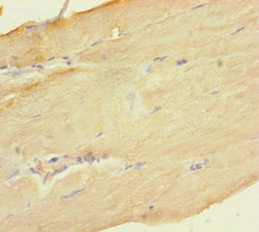Full Product Name
Rabbit anti-Homo sapiens (Human) DGUOK Polyclonal antibody
Alternative Names
DGUOK antibody; DGK antibody; Deoxyguanosine kinase antibody; mitochondrial antibody; dGK antibody; EC 2.7.1.113 antibody
Immunogen
Recombinant Human Deoxyguanosine kinase, mitochondrial protein (40-277AA)
Immunogen Species
Homo sapiens (Human)
Conjugate
Non-conjugated
The DGUOK Antibody (Product code: CSB-PA621974HA01HU) is Non-conjugated. For DGUOK Antibody with conjugates, please check the following table.
Available Conjugates
| Conjugate |
Product Code |
Product Name |
Application |
| HRP |
CSB-PA621974HB01HU |
DGUOK Antibody, HRP conjugated |
ELISA |
| FITC |
CSB-PA621974HC01HU |
DGUOK Antibody, FITC conjugated |
|
| Biotin |
CSB-PA621974HD01HU |
DGUOK Antibody, Biotin conjugated |
ELISA |
Purification Method
>95%, Protein G purified
Concentration
It differs from different batches. Please contact us to confirm it.
Buffer
Preservative: 0.03% Proclin 300
Constituents: 50% Glycerol, 0.01M PBS, PH 7.4
Tested Applications
ELISA, IHC
Recommended Dilution
| Application |
Recommended Dilution |
| IHC |
1:20-1:200 |
Storage
Upon receipt, store at -20°C or -80°C. Avoid repeated freeze.
Lead Time
Basically, we can dispatch the products out in 1-3 working days after receiving your orders. Delivery time maybe differs from different purchasing way or location, please kindly consult your local distributors for specific delivery time.
Usage
For Research Use Only. Not for use in diagnostic or therapeutic procedures.






